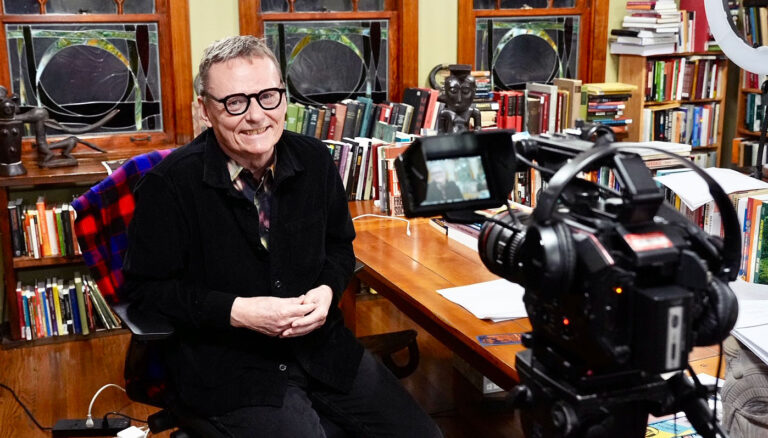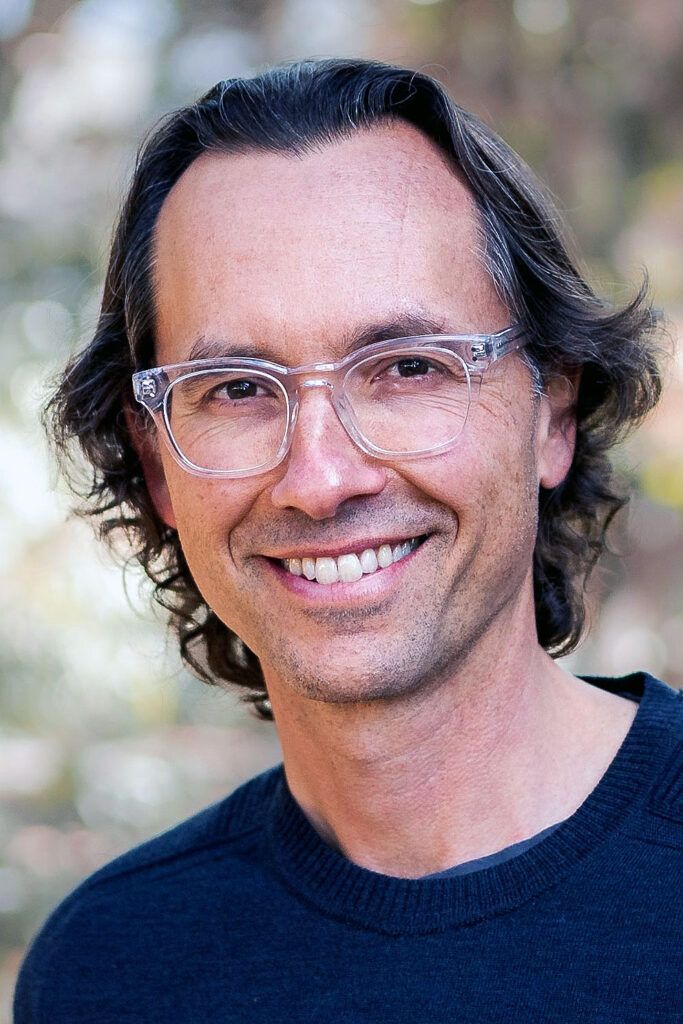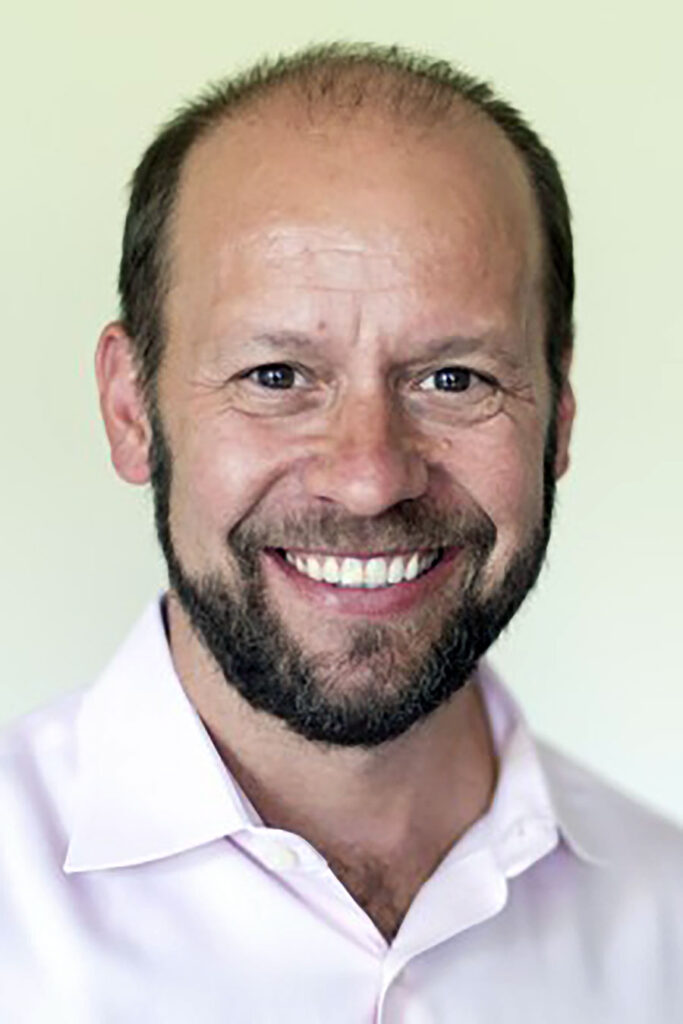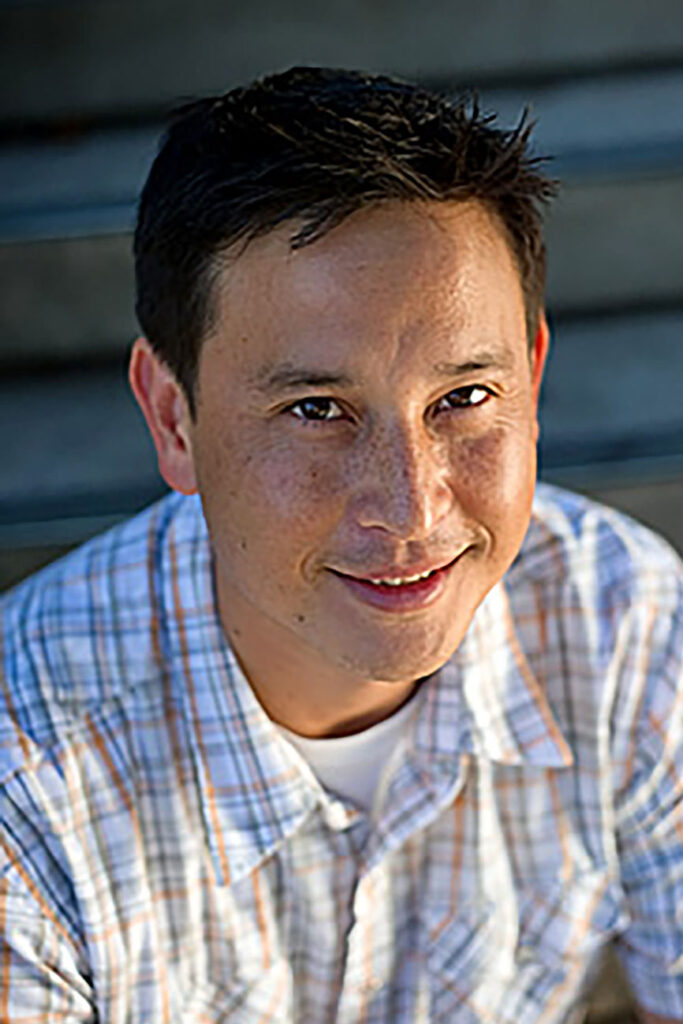James A. Robinson, a New Nobel Laureate, Left Lasting Impact at Berkeley
Robinson helped to transform the study of development in low-income countries, and built a network of influential former students. His win is now one of four 2024 Nobel Prizes awarded to scholars with UC Berkeley connections.

The years 1999 to 2004 were a period of incredible academic creativity and productivity for James Robinson, an economist and political scientist at UC Berkeley. His research and writing were transforming how the world thinks about the development of low-income countries. His teaching was shaping a generation of young Berkeley scholars who would help advance his ideas about why some nations were rich and others poor.
Today, Robinson was named one of the winners of the 2024 Nobel Memorial Prize in Economic Sciences, and though he left Berkeley 20 years ago, students and colleagues say the work he did and the relationships he built in that time still have a profound impact at Berkeley, and worldwide.
In 2000, economist Edward Miguel was in his first year as a Berkeley assistant professor, and Robinson quickly became a crucial mentor and supporter. “It was amazing having him here then, because everybody knew immediately when his work was being published how important it was,” Miguel recalled. “It was instantaneously influential.”

Thad Dunning arrived at Berkeley in 2001, and Robinson became a mentor and co-chair of his Ph.D. dissertation committee. “His influence on Berkeley graduate students was tremendous,” said Dunning, now a professor of political science. “He really had an outsized role in his five years here, and that has continued with his ties to the institution since then.”
Robinson’s win brought to four the number of 2024 Nobel Prizes received by scholars with UC Berkeley connections. Alumnus Gary Ruvkun shared the Nobel Prize in Physiology or Medicine, former faculty member John Hopwood was a co-winner of the Nobel Prize in Physics, and another alumnus, David Baker, split the Nobel Prize in Chemistry.
Robinson is now on the faculty at the University of Chicago. He shares the Nobel with his research partners Daron Acemoğlu and Simon Johnson, both of the Massachusetts Institute of Technology.
Their multidisciplinary work, drawing broadly from history and economics and built on a foundation of data and research innovation, has demonstrated that political institutions are essential to the economic development of low-income countries, the prize committee said.

“Reducing the vast differences in income between countries is one of our time’s greatest challenges,” said Jakob Svensson, chair of the Nobel economics committee. “The laureates have demonstrated the importance of societal institutions for achieving this.”
The topic had received some attention in the 20th century, but it was widely assumed that natural resources and economic institutions were more important. In their landmark papers, Robinson and his colleagues made the case that the quality of political institutions was critical for the progress of low-income countries in Latin America, Africa, Asia and other regions.
The Nobel committee cited two papers, in particular, that were written by the trio while Robinson was at Berkeley.
In 2001, “The Colonial Origins of Comparative Development: An Empirical Investigation” explored how European colonial policies shaped their colonies even decades later.
In colonies such as the U.S. or Australia, they set up states based on the rule of law and encouraged investment, the authors wrote. But at the other extreme were states where European settlers struggled to survive in difficult conditions. In Africa, for example, they simply sought to extract natural resources as fast as possible and transfer the wealth back to Europe.
In 2002, “Reversal of Fortune: Geography and Institutions in the Making of the Modern World Income Distribution” explored how some of the world’s wealthiest societies in 1500 — the Mughals in India and the Aztecs and Incas in the Americas, for example — suffered extreme reversals after colonization.
Those studies, along with the book Economic Origins of Dictatorship and Democracy (Cambridge University Press, 2005) by Acemoğlu and Robinson, rose from the creative ferment of Robinson’s Berkeley years.

The scholars have tackled “this big question of why some countries are rich and why some are poor,” said Robinson protégé Frederico Finan, a professor with joint appointments at the Haas School of Business and the department of economics. “Their argument is that it’s due to political institutions. It seems like an obvious idea now, but at the time it was completely innovative.”
“The quality of their work contributed new insights into how institutions function and how they shape economies, how economics shapes institutions as well,” Dunning explained. “That’s really changed the economics profession — and has had much wider ripple effects. For example, the way the World Bank or the International Monetary Fund approach the problem of economic growth and economic development is totally different now.”
Some countries are rich, some are poor — why?
Miguel and Dunning recalled Robinson as a scholar of almost fierce focus, voraciously reading research across disciplines to build his understanding.
“He had this tremendous intellectual curiosity,” said Dunning, who directs Berkeley’s Center on the Politics of Development. “He integrated insights not just from economics, but political science and anthropology. …The kind of interdisciplinarity that can be fostered at Berkeley played a big role for him.”
Added Miguel: “James is very intellectually intense — he read so much, and he knows so much. Any lunch with him was just incredible. He would say, ‘OK, I’ve read these 12 books. Let me tell you my thinking.’ It was fascinating to listen to him.
“Some people who are like that are not very pleasant to have lunch with because you feel intimidated, or like they’re lording it over you. But James never lorded it over anybody.”
That suggests a central insight about Robinson’s character as a scholar during his Berkeley years: He devoted himself to teaching and mentoring graduate students, the scholars said.
Miguel recalled a year in which he was slated to teach Graduate Development Economics, but he was offered a fellowship at Princeton. He asked Robinson whether he could take over the teaching duties — and incredibly, Miguel said, the senior scholar agreed.
Robinson shifted the framework of the class, focusing much more on the role of political institutions. The effect was tectonic in the lives of some students.
“Some of the students in that class have emerged as the next generation of leaders in the field,” Miguel said. “It’s pretty amazing to me when I talk to them all a few years later about their experience — they point to that one class. Berkeley does produce so many of the best Ph.D. students and researchers, and having James here and teaching was just so important for our program.
“He was very generous, very inclusive, very supportive to junior colleagues and to grad students. They just loved him. I mean, he changed their career trajectories.”
Finan, a Brazilian, is one of the new-generation leaders in development economics who emerged from that fertile time. He received his Ph.D. in agriculture and resource economics at Berkeley in 2006.
The important link between politics and poverty
Finan recalled taking a class with Robinson that “completely changed the way I thought about development economics.
“I went into the field to do research after that. Everything that he said in class just seemed to resonate: the way politicians influence people’s lives, the way they distribute public goods, the way they affect society more generally. Once you see that, there’s no way you can think about why countries are rich and poor without thinking about politics.”
For many years, Finan said, Robinson would spend the summers teaching in Bogotá, the capital of Colombia. That created a pipeline, bringing some of that nation’s best young economic and development thinkers to Berkeley, even after Robinson left for Harvard in 2004. Many of those students, and Berkeley students from other countries, then return home with the ideas developed by Robinson and his academic offspring.
Before Robinson, Acemoğlu and Johnson, “development economics was not about thinking about politics and political institutions,” Finan said. “People thought that there was no clear policy lever. I mean, how do you change the institutions of a country? As economists, we tended to ignore that.
“But what they’ve shown convincingly is just how important these things are for economic prosperity, and for the well-being of poor people. It’s for that reason that I think this Nobel Prize is so well-deserved.”
